
Ouagadougou: The Heartbeat of Burkina Faso
Ouagadougou, affectionately known as 'Ouaga,' is the vibrant capital of Burkina Faso. This bustling city is the cultural and economic center of the country, offering visitors an authentic glimpse into the heart of West Africa. From its lively markets to its rich traditions, Ouagadougou is a city that pulses with life. One of Ouaga's most appealing aspects is its warm and welcoming people. The city is known for its hospitality and friendliness, making it easy for tourists to feel at home. As you wander through its streets, you'll discover a blend of modern and traditional architecture, with highlights like the Grand Mosque and the National Museum of Music capturing the city's diverse heritage. For those interested in arts and culture, Ouagadougou is a treasure trove. The city hosts the biennial FESPACO (Panafrican Film and Television Festival of Ouagadougou), one of the largest film festivals in Africa. Additionally, the local crafts markets, such as the Village Artisanal de Ouagadougou, are perfect places to find unique souvenirs and experience the craftsmanship of Burkina Faso. The city's culinary scene is equally impressive, featuring a mix of local dishes and international cuisine. Don't miss the chance to try traditional Burkinabe meals like 'riz gras' and 'brochettes,' which are flavorful and satisfying. Whether you're exploring its historical sites, enjoying its vibrant nightlife, or simply soaking in the local atmosphere, Ouagadougou offers a rich and rewarding travel experience.
Local tips in Ouagadougou
- Learn some basic French phrases. While many people in Ouagadougou speak local languages, French is the official language and widely used.
- Visit the local markets early in the morning to avoid the heat and experience the local hustle and bustle.
- Respect local customs and dress modestly, especially when visiting religious sites or rural areas.
- Stay hydrated and use sunscreen, as the climate can be very hot and sunny.
- Use bottled water for drinking and brushing your teeth to avoid any potential health issues.
Ouagadougou: The Heartbeat of Burkina Faso
Ouagadougou, affectionately known as 'Ouaga,' is the vibrant capital of Burkina Faso. This bustling city is the cultural and economic center of the country, offering visitors an authentic glimpse into the heart of West Africa. From its lively markets to its rich traditions, Ouagadougou is a city that pulses with life. One of Ouaga's most appealing aspects is its warm and welcoming people. The city is known for its hospitality and friendliness, making it easy for tourists to feel at home. As you wander through its streets, you'll discover a blend of modern and traditional architecture, with highlights like the Grand Mosque and the National Museum of Music capturing the city's diverse heritage. For those interested in arts and culture, Ouagadougou is a treasure trove. The city hosts the biennial FESPACO (Panafrican Film and Television Festival of Ouagadougou), one of the largest film festivals in Africa. Additionally, the local crafts markets, such as the Village Artisanal de Ouagadougou, are perfect places to find unique souvenirs and experience the craftsmanship of Burkina Faso. The city's culinary scene is equally impressive, featuring a mix of local dishes and international cuisine. Don't miss the chance to try traditional Burkinabe meals like 'riz gras' and 'brochettes,' which are flavorful and satisfying. Whether you're exploring its historical sites, enjoying its vibrant nightlife, or simply soaking in the local atmosphere, Ouagadougou offers a rich and rewarding travel experience.
When is the best time to go to Ouagadougou?
Unmissable attractions to see
Église de Dapoya
Discover the Église de Dapoya in Ouagadougou: a serene spiritual haven showcasing stunning architecture and vibrant community life.
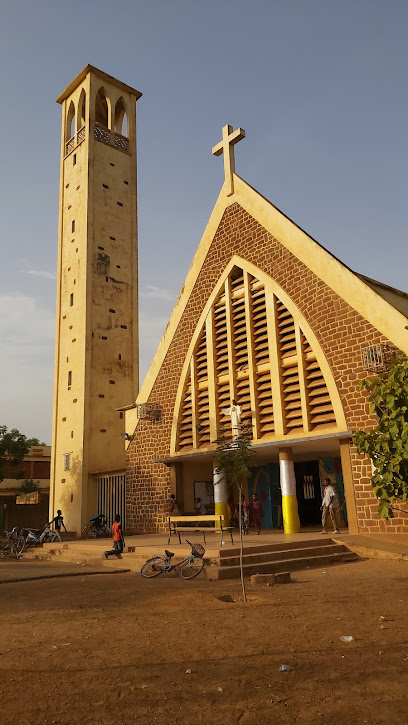
AQUA PARK-OUAGA
Discover the excitement of AQUA PARK-OUAGA, a premier water park in Ouagadougou, perfect for family fun and adventure under the sun.
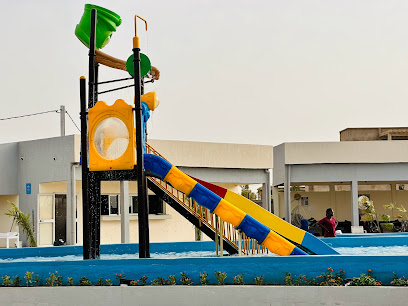
Mosquée De
Discover the architectural splendor and cultural significance of Mosquée De, a serene mosque in the heart of Ouagadougou, Burkina Faso.

Parc d'attraction & aquatique Janis Land
Experience the thrill of water adventures at Janis Land Water Park in Ziniaré, a perfect destination for family fun and relaxation.
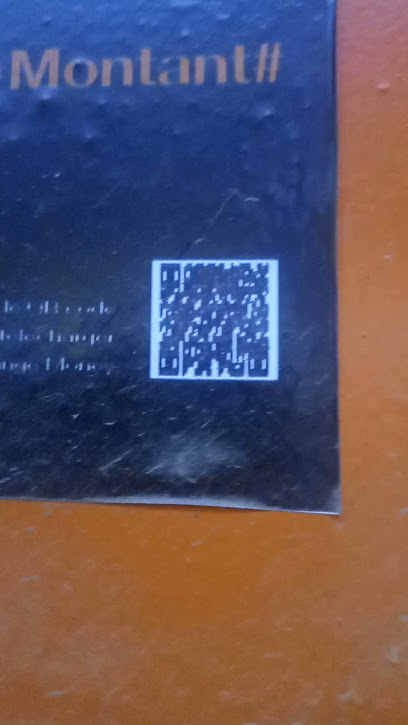
Parc malaïka's dream
Experience endless fun and adventure at Parc Malaïka's Dream, Ouagadougou's premier amusement park for families and thrill-seekers.

Essential places to dine
La Perle
Discover La Perle: A vibrant restaurant in Ouagadougou offering delicious local and international cuisine in a warm atmosphere.
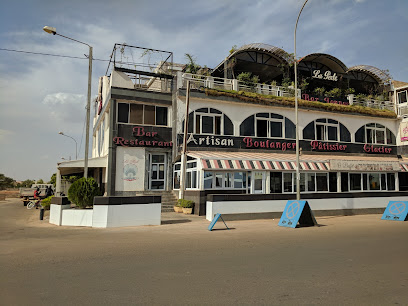
SIKA LOUNGE
Discover SIKA LOUNGE: A Culinary Haven in Ouagadougou Offering Delicious Local Cuisine and Exotic Cocktails.
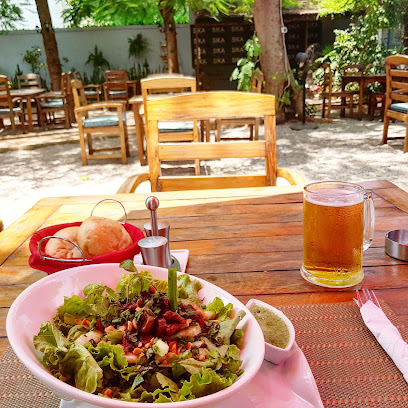
Le Verdoyant
Discover Le Verdoyant: An exquisite restaurant in Ouagadougou offering traditional Burkinabé dishes and international cuisine in a beautiful setting.
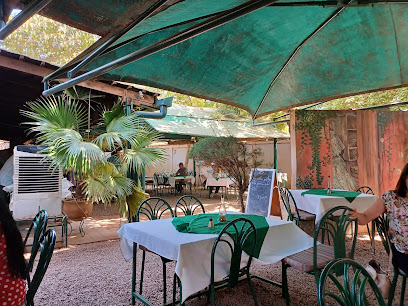
Chick Restaurant
Discover Chick Restaurant in Ouagadougou: A delightful blend of African flavors and international favorites in a vibrant setting.
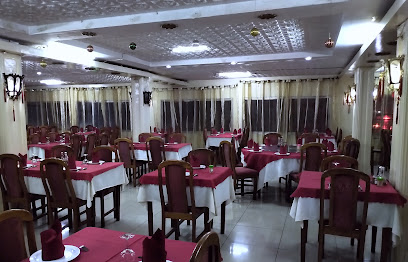
Restaurant Chez Momo
Discover the rich flavors of Turkey at Restaurant Chez Momo in Ouagadougou – a culinary destination for breakfast lovers and pastry enthusiasts alike.
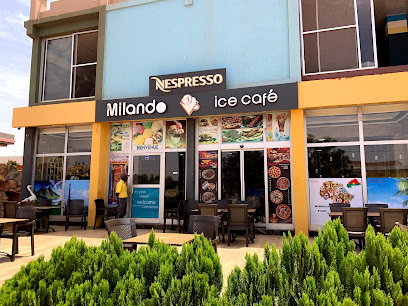
Resto Café ONU
Experience authentic Burkinabé cuisine at Resto Café ONU in Ouagadougou—where flavor meets culture in a cozy setting.
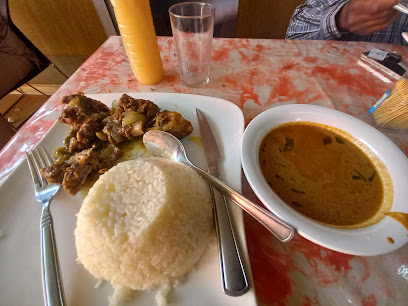
La Véranda
Discover La Véranda in Ouagadougou: A culinary haven offering delightful local and international dishes amidst warm Burkinabé hospitality.
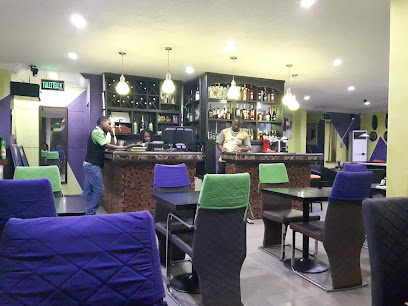
Gondwana
Discover Gondwana: A delightful culinary experience in Ouagadougou blending local flavors with international cuisine.
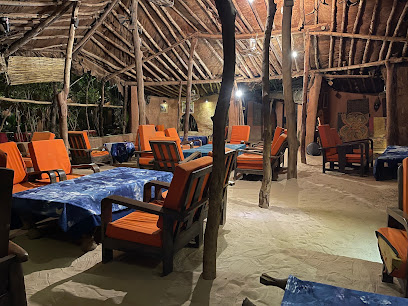
Asanka Locals Restaurant
Discover authentic Burkinabé flavors at Asanka Locals Restaurant in Ouagadougou - a culinary journey through local traditions awaits!
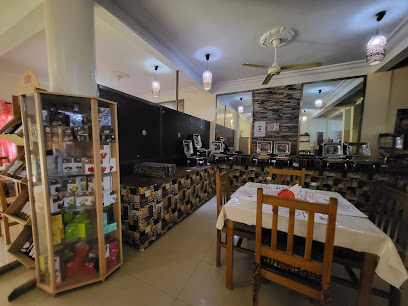
Restaurant Italien Rosa Dei Venti
Experience authentic Italian cuisine at Restaurant Italien Rosa Dei Venti in Ouaga 2000 - where every meal is a celebration of flavor.
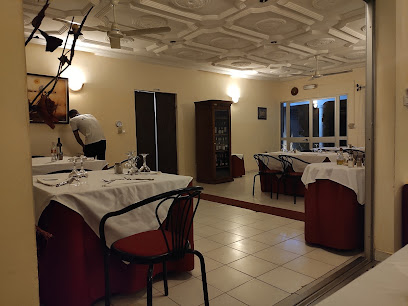
benoua lodge
Discover exquisite flavors at Benoua Lodge in Ouagadougou—where local meets global in a delightful culinary experience.
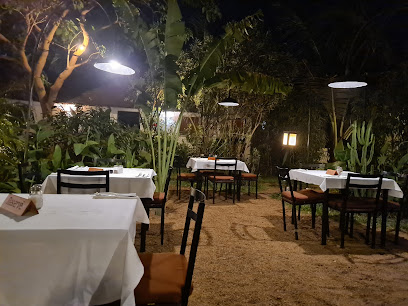
La Belle Etoile
Experience the flavors of Burkina Faso at La Belle Etoile - where culinary tradition meets modern flair in Ouagadougou.
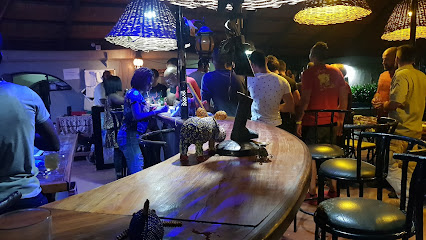
Le Bistrot Lyonnais
Discover Le Bistrot Lyonnais: A culinary gem in Ouagadougou blending local flavors with French elegance.
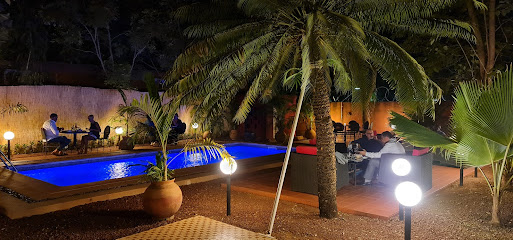
LAA VITA RESTAURANT
Experience authentic Burkinabé cuisine at LAA VITA RESTAURANT in Ouagadougou - where flavors meet culture.
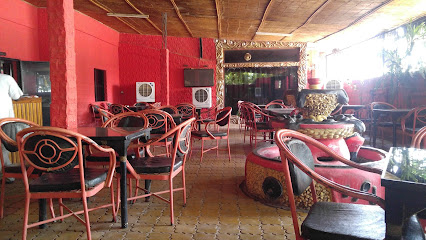
Villa Kaya Ouagadougou
Experience authentic Burkinabé cuisine at Villa Kaya, your cozy retreat in Ouagadougou blending culinary delights with comfortable lodging.
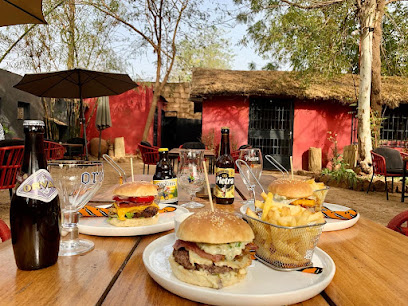
Markets, malls and hidden boutiques
10 yaar
Experience the vibrant shopping and cultural atmosphere of 10 Yaar Shopping Mall in Ouagadougou, a must-visit destination for every traveler.
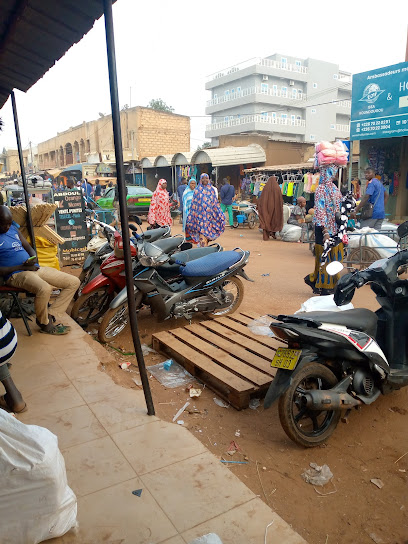
Burkina Pas Chèr
Explore Burkina Pas Chèr in Ouagadougou for authentic Burkinabe gifts and souvenirs, celebrating local craftsmanship and culture.
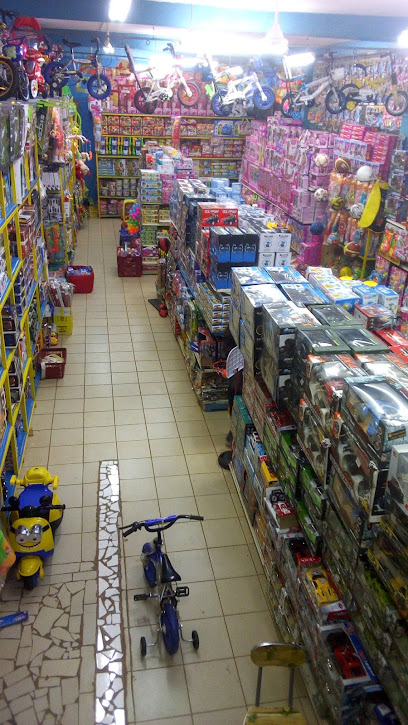
Liza mall
Explore Liza Mall in Ouagadougou for a unique shopping experience combining local charm and modern convenience.
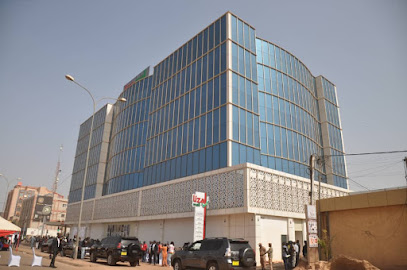
DEYDAY
Discover Deyday in Ouagadougou: Your go-to gift shop for unique jewelry, stylish computer accessories, and elegant lingerie.
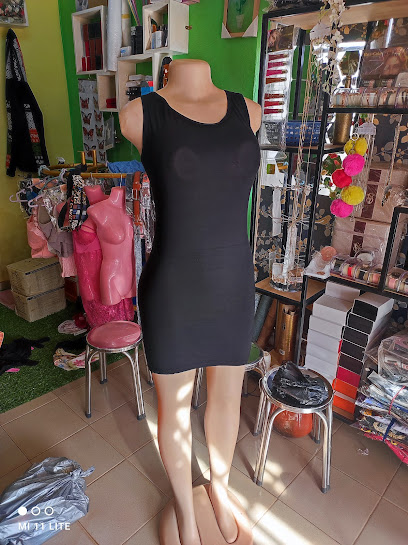
Chez Moaz - Apple Store
Discover cutting-edge electronics at Chez Moaz in Ouagadougou, your go-to destination for technology and gadgets during your travels.
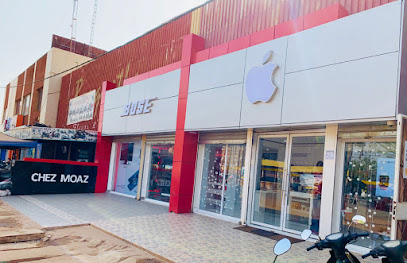
PETIT MOINS CHERS PMC
Explore PETIT MOINS CHERS PMC, your go-to gift shop in Ouagadougou for authentic local crafts and unique souvenirs.
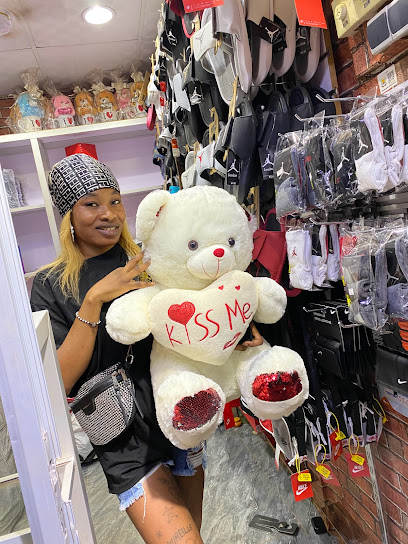
FASO BEAUTEX PAGNES TISSÉS
Discover the vibrant artistry of Burkina Faso at Faso Beautex, your destination for exquisite handwoven textiles and unique cultural gifts.
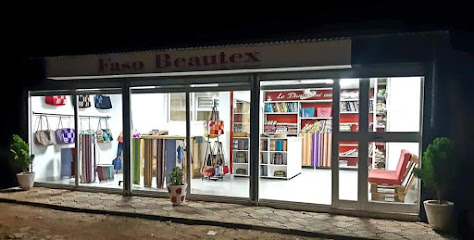
KSTORE BOUTIQUE
Explore KSTORE BOUTIQUE in Ouagadougou for the latest electronics and gadgets in a welcoming atmosphere with expert assistance.
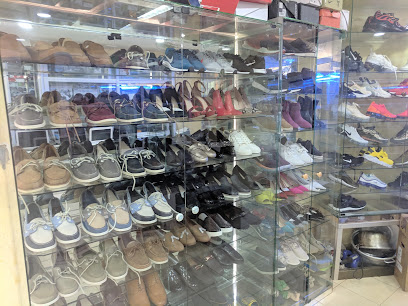
Sun store
Uncover unique fashion treasures at Sun Store, Ouagadougou's premier vintage clothing destination offering a nostalgic shopping experience.
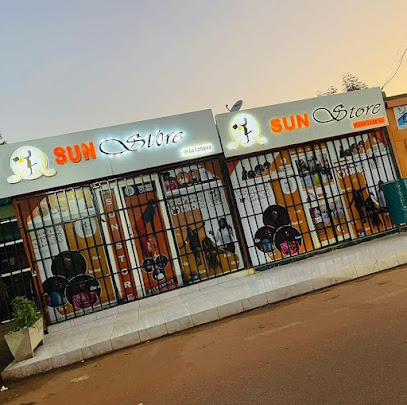
Sucre Store
Discover local elegance at Sucre Store in Ouagadougou, where exquisite lingerie meets Burkinabé artistry for a unique shopping experience.
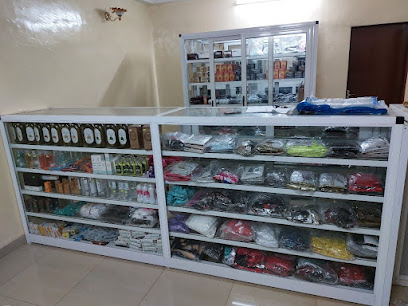
WYZ Accessoires
Discover unique gifts and local crafts at WYZ Accessoires in Ouagadougou, where every item tells a story of Burkinabe culture and artistry.
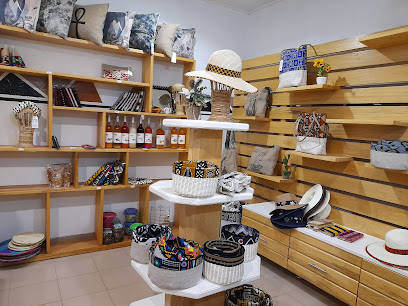
OCCI SHOP
Explore OCCI SHOP in Ouagadougou for unique treasures and a glimpse into the rich culture of Burkina Faso, perfect for souvenirs and gifts.
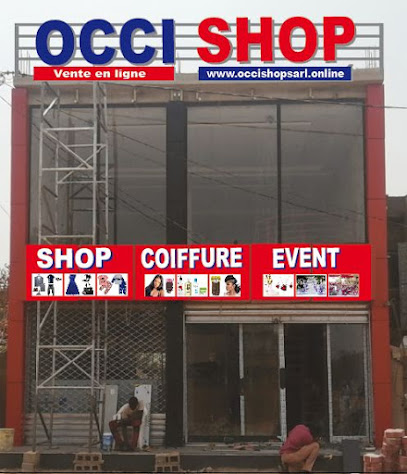
DESIGN BOUTIQUE
Explore the vibrant fashion scene at DESIGN BOUTIQUE in Kalgondin, Ouagadougou, where local culture meets unique style in every piece.
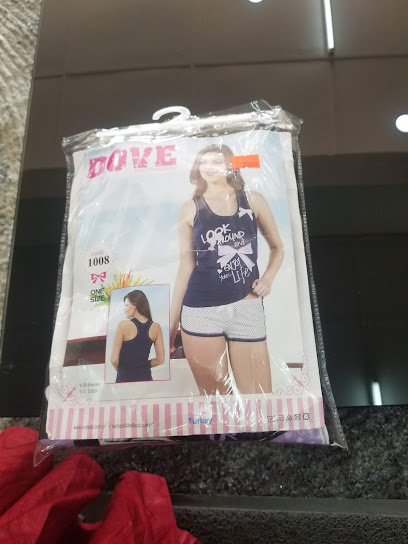
La Reine du Sublime Nouvelle Boutique
Experience the essence of Burkina Faso's fashion culture at La Reine du Sublime Nouvelle Boutique, showcasing the latest in women's clothing.
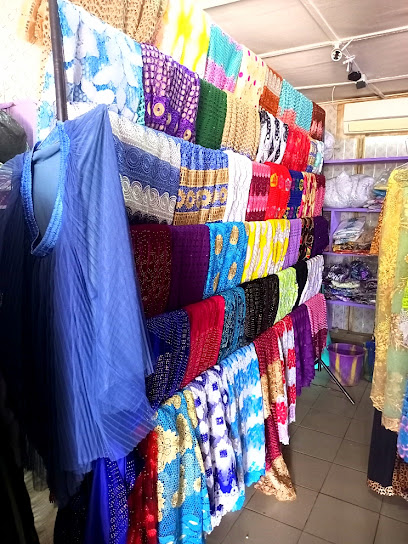
Galerie Du Faso
Discover the vibrant culture of Burkina Faso through exquisite home goods at Galerie Du Faso in Ouagadougou.
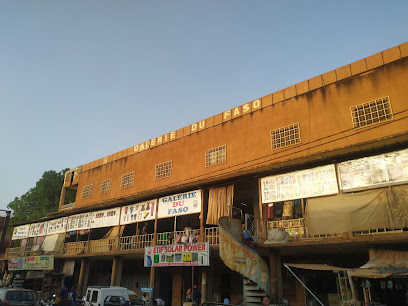
Essential bars & hidden hideouts
SIKA LOUNGE
Discover the vibrant ambiance of SIKA LOUNGE, a premier bar and restaurant in Ouagadougou offering local and international flavors.
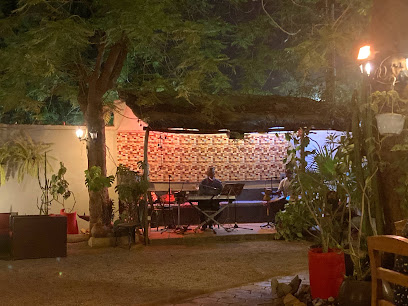
Boulgou Bar
Discover the lively ambiance and local charm of Boulgou Bar in Ouagadougou, a perfect spot for relaxation and cultural immersion.
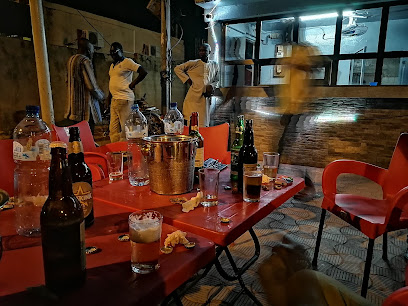
SUNSET OUAGA
Discover Sunset Ouaga, a lively bar in Ouagadougou, perfect for experiencing local culture and vibrant nightlife with friends.
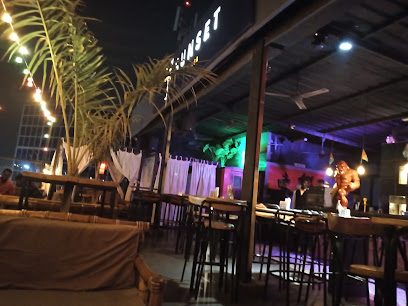
Cosy Corner
Discover the charm of Ouagadougou's nightlife at Cosy Corner, a vibrant bar offering a mix of local and international drinks in a welcoming atmosphere.
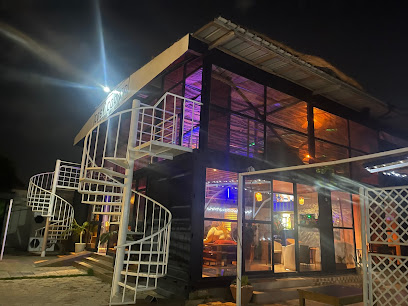
MAIRE BAR
Discover the heart of Ouagadougou’s nightlife at MAIRE BAR, where local culture meets a vibrant social scene in Kilwin.
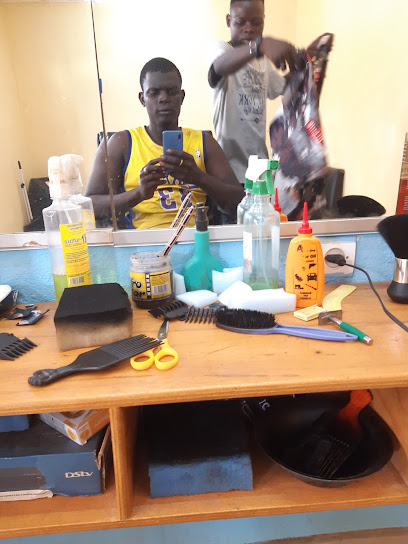
Sport Bar
Discover Ouagadougou's premier sport bar, where excitement meets local culture in a lively atmosphere filled with sports and great company.
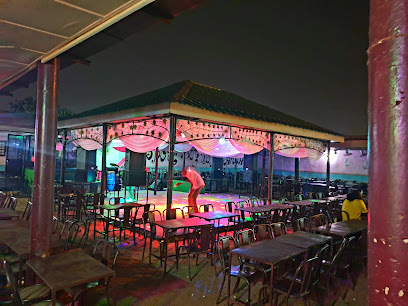
Zama Bar
Discover the vibrant nightlife of Ouagadougou at Zama Bar, where refreshing drinks and good company await you in a lively atmosphere.
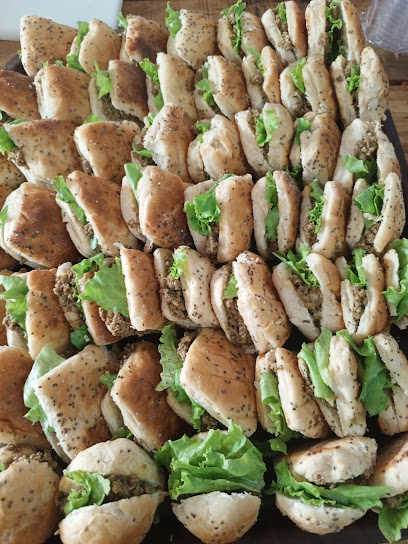
Place Vendôme Ouaga
Experience the vibrant nightlife of Ouagadougou at Place Vendôme Ouaga, where refreshing drinks and a lively atmosphere await.
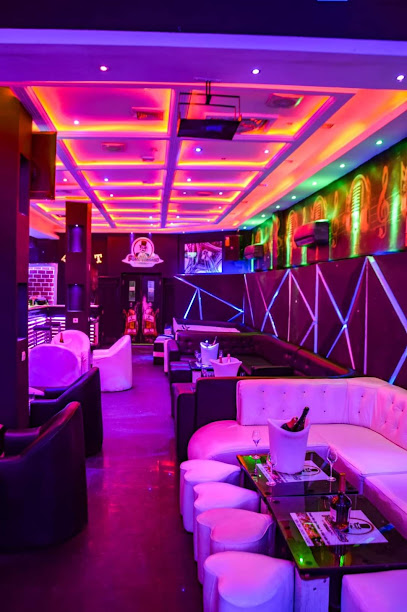
Stress Out
Discover the vibrant atmosphere and refreshing drinks at Stress Out, the perfect bar for relaxation and socializing in Ouagadougou.
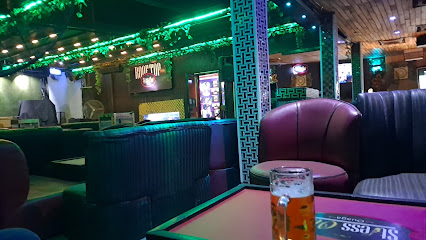
BAR DANCING LE TAPIS ROUGE
Discover the vibrant nightlife at Le Tapis Rouge, Ouagadougou's premier bar offering refreshing drinks and a lively atmosphere.
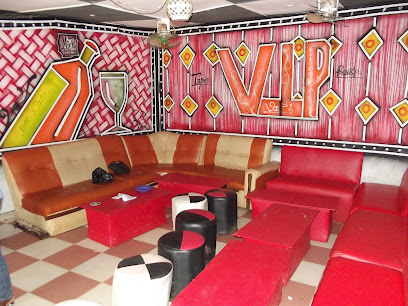
Diam's lounge
Discover the lively ambiance and diverse drink selection at Diam's Lounge, a popular bar in the heart of Ouagadougou, perfect for tourists and locals alike.
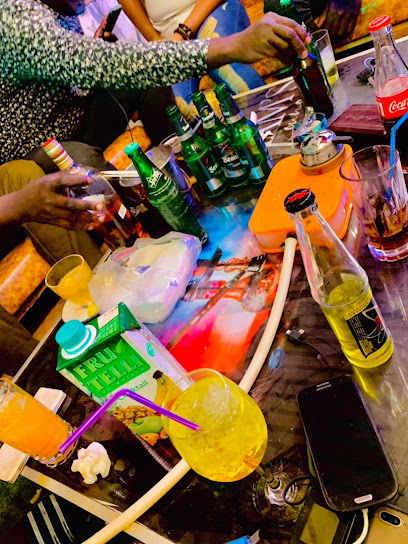
COOL is Good
Discover the lively atmosphere of COOL is Good in Ouagadougou, where local culture meets refreshing drinks in an unforgettable bar experience.
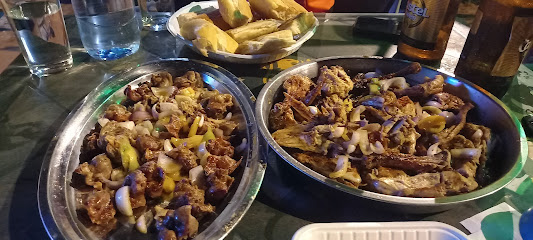
la parenthese bar resto lounge
Experience the vibrant nightlife at La Parenthèse, a stylish bar and lounge in Ouagadougou offering delightful drinks and a lively atmosphere.
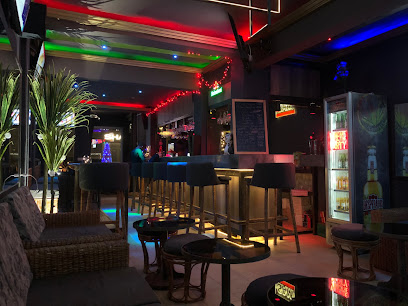
Amical bar
Experience the vibrant nightlife at Amical Bar in Ouagadougou, where local culture meets a friendly atmosphere for unforgettable evenings.
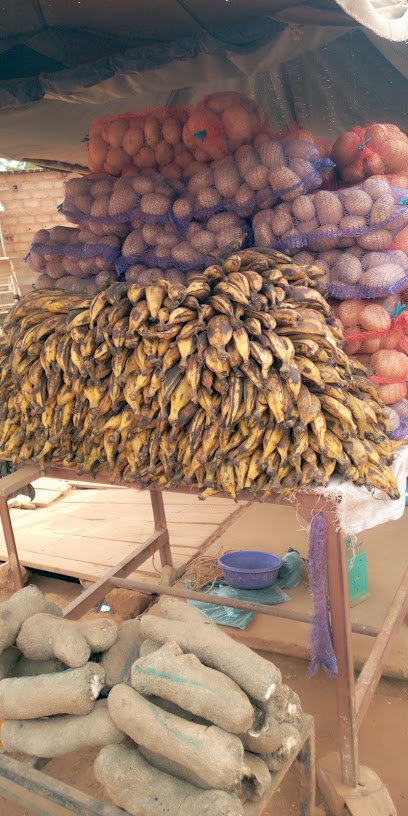
Local Phrases
-
- HelloSalut
[sa-loo] - GoodbyeAu revoir
[o ru-vwar] - YesOui
[wee] - NoNon
[no] - Please/You're welcomeS'il vous plaît / De rien
[seel voo pleh / deh ryen] - Thank youMerci
[mer-see] - Excuse me/SorryExcusez-moi/Désolé
[ex-kew-zay mwah / deh-soh-lay] - How are you?Comment ça va?
[ko-mohn sah vah] - Fine. And you?Bien. Et toi?
[byen. ay twah] - Do you speak English?Parlez-vous anglais?
[par-lay voo ahn-glay] - I don't understandJe ne comprends pas
[zhuh nuh kohm-prahnd pah]
- HelloSalut
-
- I'd like to see the menu, pleaseJe voudrais voir le menu, s'il vous plaît
[zhuh voo-dray vwahr luh meh-noo, seel voo pleh] - I don't eat meatJe ne mange pas de viande
[zhuh nuh mahnj pah duh vyand] - Cheers!Santé!
[san-tay] - I would like to pay, pleaseJe voudrais payer, s'il vous plaît
[zhuh voo-dray pay-ay, seel voo pleh]
- I'd like to see the menu, pleaseJe voudrais voir le menu, s'il vous plaît
-
- Help!Au secours!
[o seh-koor] - Go away!Allez-vous en!
[al-lay vooz ahn] - Call the Police!Appelez la police!
[ah-peh-lay lah pee-lees] - Call a doctor!Appelez un médecin!
[ah-peh-lay uh may-deh-sahn] - I'm lostJe suis perdu
[zhuh swee pair-doo] - I'm illJe suis malade
[zhuh swee mah-lahd]
- Help!Au secours!
-
- I'd like to buy...Je voudrais acheter...
[zhuh voo-dray zah-shey...] - I'm just lookingJe regarde juste
[zhuh ruh-gard zhoost] - How much is it?Combien ça coûte?
[kohm-byen sah koot] - That's too expensiveC'est trop cher
[say troh shair] - Can you lower the price?Pouvez-vous baisser le prix?
[poo-vay voo beh-say luh pree]
- I'd like to buy...Je voudrais acheter...
-
- What time is it?Quelle heure est-il?
[kell ur ay eel] - It's one o'clockIl est une heure
[eel ay oon ur] - Half past (10)Dix heures et demie
[dees ur ay duh-mee] - MorningMatin
[mah-tan] - AfternoonAprès-midi
[ah-pray mee-dee] - EveningSoir
[swah] - YesterdayHier
[yehr] - TodayAujourd'hui
[oh-zhoor-dwee] - TomorrowDemain
[duh-mahn] - 1Un
[uhn] - 2Deux
[duh] - 3Trois
[twah] - 4Quatre
[kat] - 5Cinq
[sank] - 6Six
[sees] - 7Sept
[set] - 8Huit
[weet] - 9Neuf
[nuf] - 10Dix
[dees]
- What time is it?Quelle heure est-il?
-
- Where's a/the...?Où est...?
[oo ay...] - What's the address?Quelle est l'adresse?
[kell ay lah-dress] - Can you show me (on the map)?Pouvez-vous me montrer (sur la carte)?
[poo-vay voo muh mohn-tray (soor lah kart)] - When's the next (bus)?Quand est le prochain (bus)?
[kahnd ay luh proh-shang (boos)] - A ticket (to ....)Un billet (pour ....)
[uhn bee-yay (poor)]
- Where's a/the...?Où est...?
History of Ouagadougou
-
Ouagadougou, the capital city of Burkina Faso, traces its roots back to the 11th century when it was founded by the Mossi people. The city's name is derived from 'Wogodogo,' which means 'where people get honor and respect.' Over the centuries, Ouagadougou evolved into the political and cultural heart of the Mossi Kingdom.
-
In the late 19th century, Ouagadougou became a focal point during the Scramble for Africa. In 1896, the city was occupied by French forces and became part of French West Africa. Under French colonial rule, Ouagadougou was transformed into an administrative center, leading to infrastructural developments such as the construction of railways and administrative buildings.
-
Ouagadougou played a key role in the country's journey to independence. In 1960, Upper Volta (now Burkina Faso) gained independence from France, with Ouagadougou as its capital. The city became the epicenter for national political activities and developments as the new nation sought to establish its identity and governance structures.
-
One of the most significant periods in Ouagadougou's modern history was the revolutionary government led by Thomas Sankara from 1983 to 1987. Sankara, often referred to as 'Africa's Che Guevara,' implemented sweeping reforms aimed at reducing corruption, promoting social justice, and advancing women's rights. Ouagadougou was at the heart of these transformative initiatives, which left an indelible mark on the city's socio-political landscape.
-
Ouagadougou is renowned for its vibrant cultural scene, most notably the FESPACO (Pan-African Film and Television Festival of Ouagadougou). Established in 1969, FESPACO is the largest film festival on the African continent, attracting filmmakers and audiences from around the world. The city's cultural tapestry is also enriched by traditional Mossi ceremonies, artisanal crafts, and music festivals that celebrate Burkina Faso's diverse heritage.
-
In recent decades, Ouagadougou has experienced significant urban development and modernization. The city has expanded with new residential areas, commercial centers, and infrastructure projects. The construction of landmarks such as the Monument des Héros Nationaux and the Ouaga 2000 district symbolizes the city's ongoing transformation and aspirations for the future.
Ouagadougou Essentials
-
Ouagadougou is served by Ouagadougou International Airport (OUA), located about 3 kilometers from the city center. The airport offers direct flights to and from several major cities in Africa and Europe. Once you arrive, you can take a taxi or an airport shuttle to reach your accommodation. There are also bus services connecting Ouagadougou to other cities in Burkina Faso and neighboring countries.
-
Transportation within Ouagadougou includes taxis, car rentals, and motorbike taxis (known locally as 'moto-taxis'). Taxis are relatively affordable and can be hailed on the street or booked via phone. Public minibuses are available but can be crowded and less reliable. For a local experience, you can also rent a bicycle to navigate the city's flat terrain.
-
The official currency in Burkina Faso is the West African CFA franc (XOF). Credit cards are accepted in some hotels, restaurants, and shops, but cash is preferred, especially in smaller establishments. ATMs are available throughout Ouagadougou, but it's advisable to carry sufficient cash for emergencies or when visiting rural areas. Currency exchange services can be found at the airport and in major banks.
-
While Ouagadougou is generally safe for tourists, it's important to stay vigilant. Avoid walking alone at night, especially in poorly lit areas. Be cautious in crowded places like markets and bus stations, as petty theft and pickpocketing can occur. Areas such as Zogona and Tampouy have higher crime rates, so it's best to stay alert if you need to visit these neighborhoods.
-
In case of an emergency, dial 17 for police assistance, 18 for fire services, and 112 for medical emergencies. Major hospitals in Ouagadougou include the Yalgado Ouédraogo University Hospital and the Schiphra Hospital. It's recommended to have travel insurance that covers medical emergencies. Pharmacies are widely available for minor health issues and over-the-counter medications.
-
Fashion: Do dress modestly, especially when visiting religious sites or rural areas. Avoid wearing overly revealing clothing. Religion: Do show respect for local customs and traditions. Remove your shoes when entering religious buildings. Public Transport: Do be polite and patient when using public transport. Don't display valuables openly. Greetings: Do greet people with a handshake and a smile. Use 'Bonjour' (Good day) as a polite greeting. Eating & Drinking: Do try local dishes and accept invitations to share meals. Don't refuse food or drink offerings, as it can be considered impolite.
-
To experience Ouagadougou like a local, visit the Grand Marché and Rood Woko Market for a variety of goods, from fresh produce to traditional crafts. Engage with locals, who are often friendly and willing to share stories about their culture and history. Don't miss the National Museum of Burkina Faso for insights into the country's heritage. For a unique experience, attend a traditional dance performance or a live music event, as Ouagadougou is known for its vibrant cultural scene.
Nearby Cities to Ouagadougou
-
Things To Do in Ziniaré
-
Things To Do in Koudougou
-
Things To Do in Ouahigouya
-
Things To Do in Dédougou
-
Things To Do in Wa
-
Things To Do in Bobo-Dioulasso
-
Things To Do in Tamale
-
Things To Do in Niamey
-
Things To Do in Sunyani
-
Things To Do in Atakpamé
-
Things To Do in Kumasi
-
Things To Do in Kpalimé
-
Things To Do in Notse
-
Things To Do in Ho
-
Things To Do in Bamako









